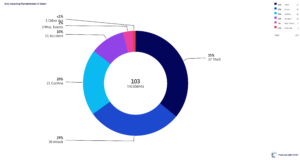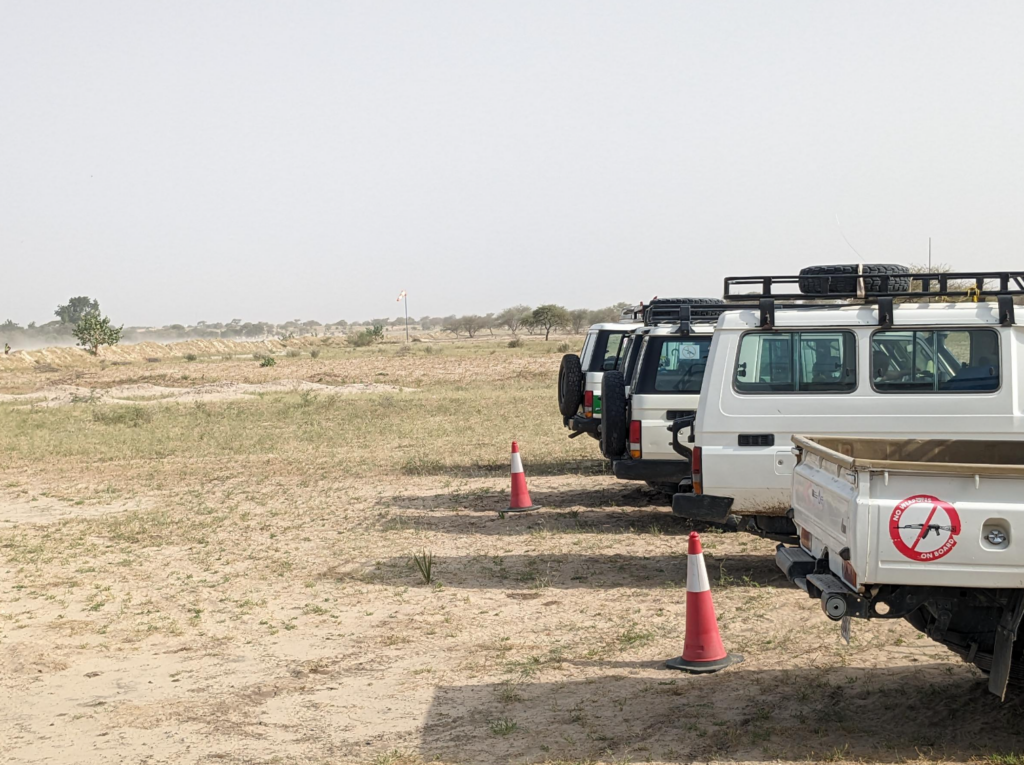INSO is shocked and appalled at the latest attacks on aid workers in Zamzam camp and the killing of 10 Sudanese aid workers while operating one of the very few remaining health facilities still providing assistance to those living in the camp. On 11 April, forces affiliated with the Rapid Support Forces attacked Zamzam and Abu Shouk displacement camps as well as Al Fasher town in North Darfur, killing over 100 people, including more than 20 children, destroying community kitchens and medical centres. Such blatant violations of international humanitarian law must end.
For nearly a year, hundreds of thousands of people in these displacement sites have been effectively living under siege, enduring persistent bombardment and attack. Since the beginning of the year, almost 200 incidents (Conflict and Humanitarian Data Centre) against civilians and aid workers were recorded in North Darfur, two thirds of which involving artillery, airstrikes or drone attacks.
These attacks, represent a continued escalation in violence against civilians and aid workers alike, across Sudan. Since the activation of INSO’s Conflict and Humanitarian Data Centre in July 2024, over 3,500 civilians, including aid workers, have been killed by parties to the conflict.
Since the rapid escalation of conflict between the Sudanese Armed Forces (SAF) and RSF on 15 April 2023, humanitarian needs in Sudan have continued to grow, with over 13 million people forced to flee their homes either within Sudan or to neighbouring counties and 24 million people living in acute food insecurity. However, the humanitarian response has been continuously impeded by systemic obstructions, insecurity, harassment, attacks and now funding cuts. Despite this however, aid workers including local community responders, have continued to attempt to reach those in need, often at great risk.
In the last 9 months, INSO has recorded 103 incidents impacting aid workers in Sudan:

Alongside bureaucratic and administrative challenges, including continued delays in issuing necessary visas and travel permissions, these incidents severely impede humanitarian access. Aid workers, including local community responders, have been attacked, harassed, and even detained whilst trying to deliver aid to communities. On top of this, both parties to the conflict continue to block or delay the entry of humanitarian aid.
In addition to targeted attacks, the continued use of explosive weaponry in populated areas continues to be a key source of risk to civilians and aid workers. During March, artillery fire was one of the most prominent risks humanitarians faced, particularly in Khartoum, Al-Fasher, and El-Obeid. In the last 9 months, over 400 incidents of the use of artillery, airstrikes and drone attacks were recorded, leading to the death and injury of 5,000 civilians.
UN Security Council Resolution 2730 demands that all parties to armed conflict fully comply with their obligations under international humanitarian law, including their obligations related to the respect and protection of humanitarian personnel. As Sudan enters its third year of conflict, its imperative that member states take decisive steps and use their diplomatic influence on the parties to the conflict to protect civilians, facilitate aid access, and uphold international Humanitarian Law. Attacks on civilians and aid workers in Sudan must end and those responsible for violations must be held to account.
INSO in Sudan
At the outset of the current war in April 2025, at the behest of the Sudan INGO Forum, INSO began supporting NGOs through a remote platform – providing weekly digests on conflict activity and NGO incidents, thematic analysis and direct briefings to humanitarian colleagues. At the same time, INSO began to work towards establishing a presence in-country with a small, dedicated team, with a team working across Port Sudan and Nairobi. This hybrid operational model allows INSO to remain agile, responsive, and present — even amid constrained resources. In 2025, INSO has expanded to Omdurman, and has ambitions to establish physical presence in Darfur, South Kordofan, Blue Nile and Gedaref.
INSO is currently providing services to 70 International and National NGOs in Sudan. If you are an NGO operating in Sudan with need of INSO’s free access and safety analysis services, you can register via our website or by reaching out to info@sdn.ngosafety.org
INSO Sudan is gratefully supported by ECHO and FCDO.

